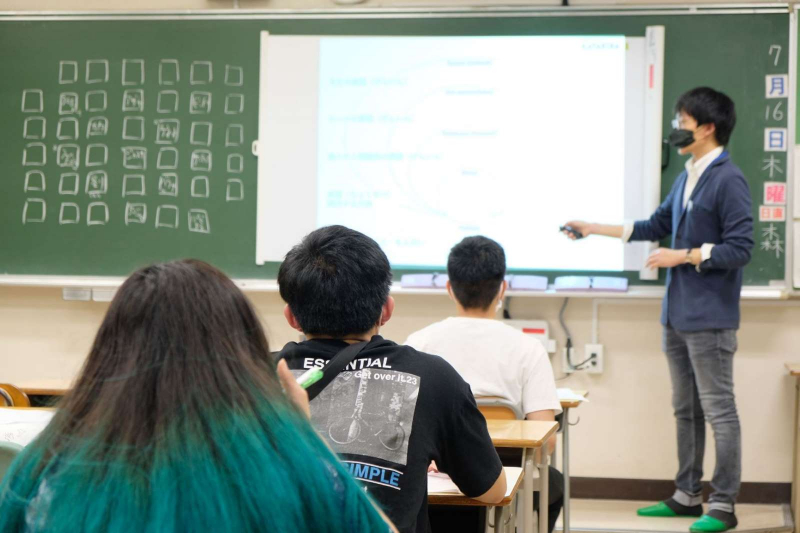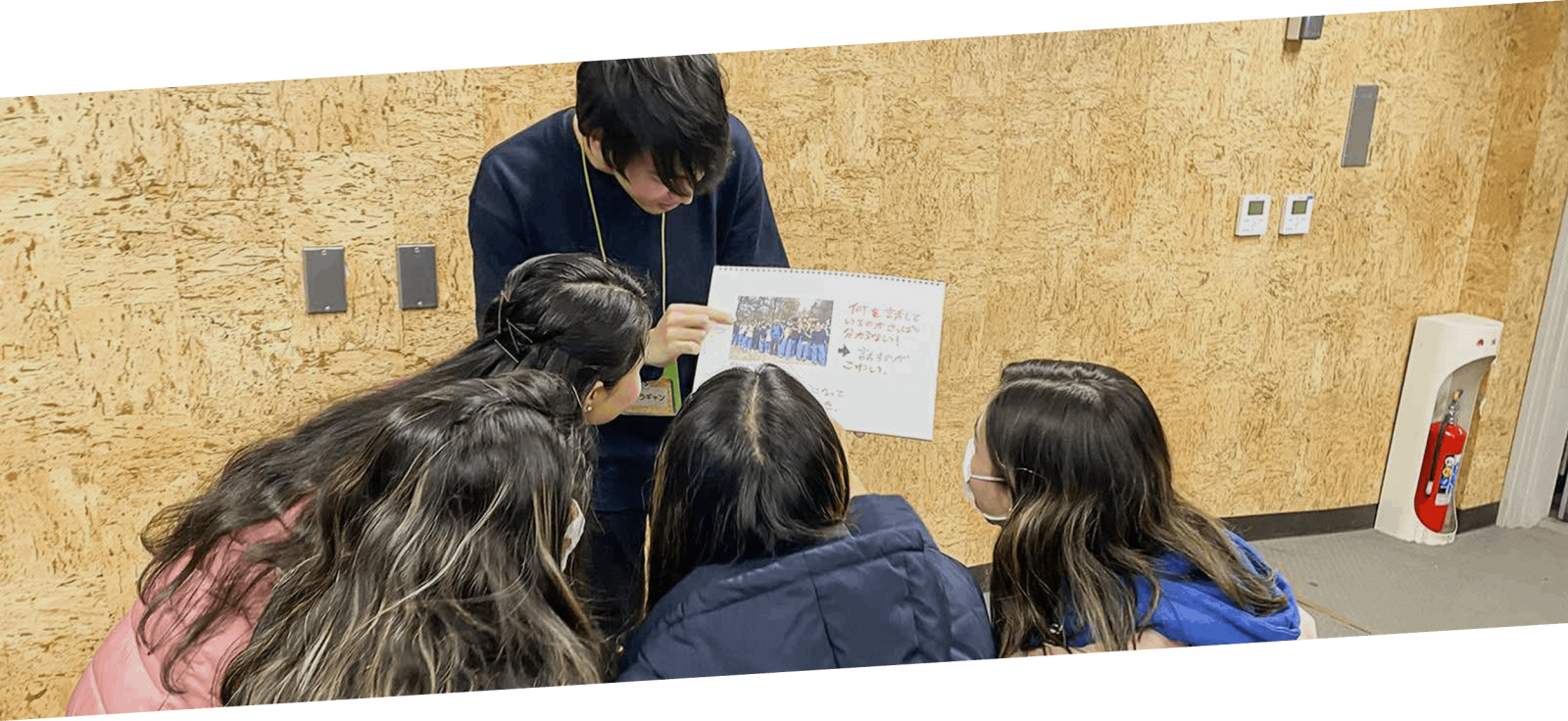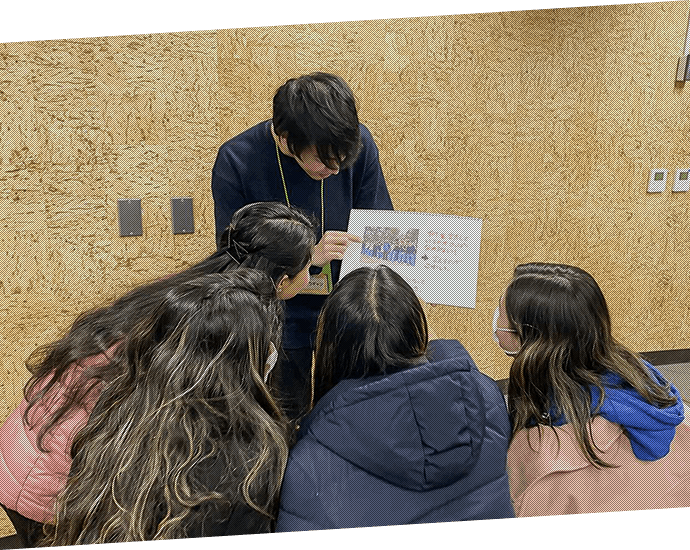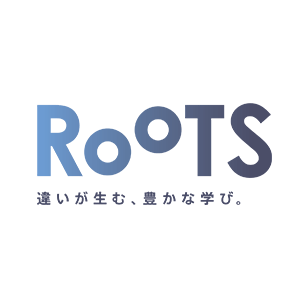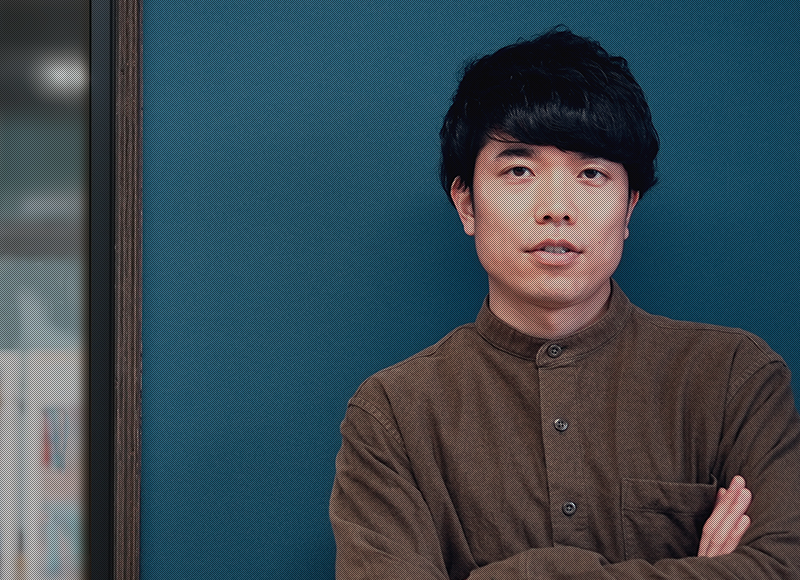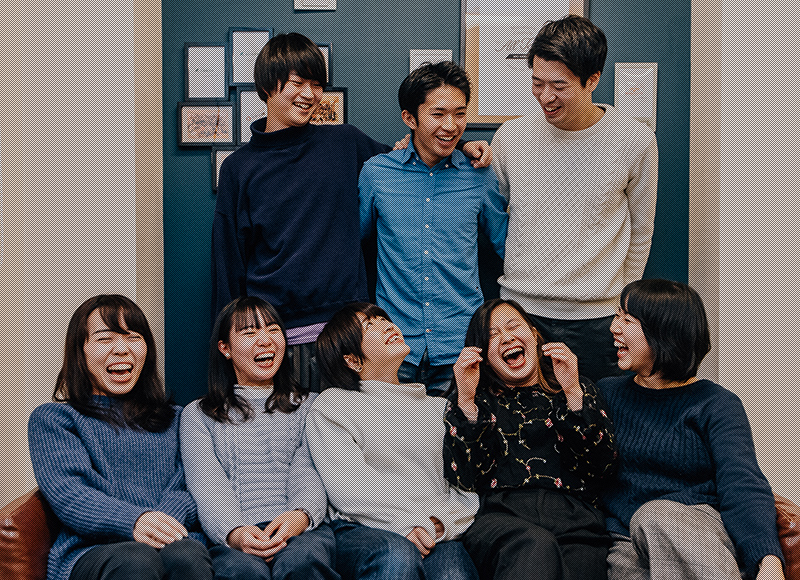Creating enriched learning experiences for youth through acknowledging differences
Project to Support High School Students with Foreign Roots
Concept
According to the Ministry of Education, Culture, Sports, Science and Technology’s “Survey on the Acceptance of Children in Need of Japanese Language Instruction (2008),” there are more than 4,000 high school students nationwide in need of Japanese language instruction, and the number has increased 2.7 times in the past 10 years.
The “Project to Support High School Students with Foreign Roots” provides a variety of support for students during in-class and after-school hours, so that high school students with foreign roots, who are often isolated, can envision their future.
Serviceサービス
活動概要
-
TEL
03-5942-9646
-
Activity Period
From 2019
-
Target Group
High school students with foreign roots
-
Activities
Online mentoring, implementation of career education programs, coordination of multicultural activities at high schools, etc., in-class support, after-school support
Background of Our Activities
High dropout rate and non-regular employment rate
There are more than 4,000 high school students in Japan who are in need of Japanese language instruction, and the number of these students has increased 2.7 times in the past 10 years (※), and the number continues to rise steadily.
Data also shows that the high school students who are in need of Japanese language instruction have an 8.3 percent point higher high school dropout rate and a 35.7 percent point higher non-regular employment rate compared to all high school students, indicating the severity of environment surrounding them as they live in Japanese society.
We believe that one of the reasons for this is that there is less support targeted towards high school students with foreign roots than there is for elementary and junior high school students who are in compulsory education, or for those already employed.
※Based on “Survey of the Acceptance of children who need Japanese language Instruction” by MEXT (2008).
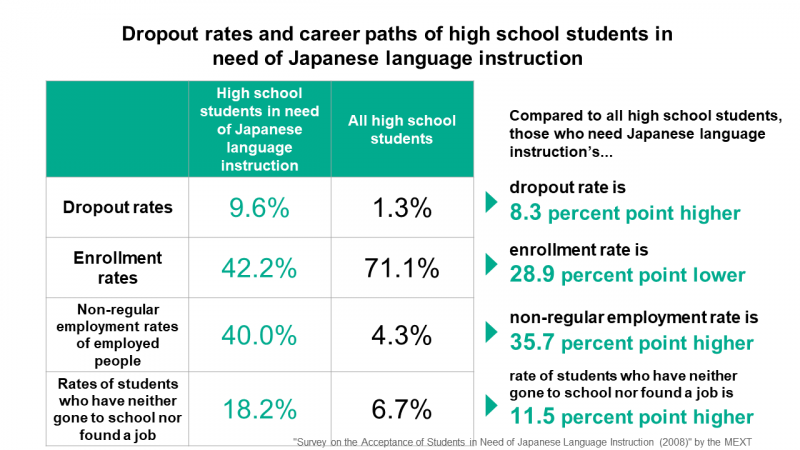
Language barrier is just the tip of the iceberg
Language barrier is often cited as a bottleneck for people with foreign roots to live in Japanese society. However, in the course of our activities, we have come to realize that this is just the tip of the iceberg, and that bottlenecks also reside in their lack of connection to society and lack of opportunities to develop their skills and abilities.
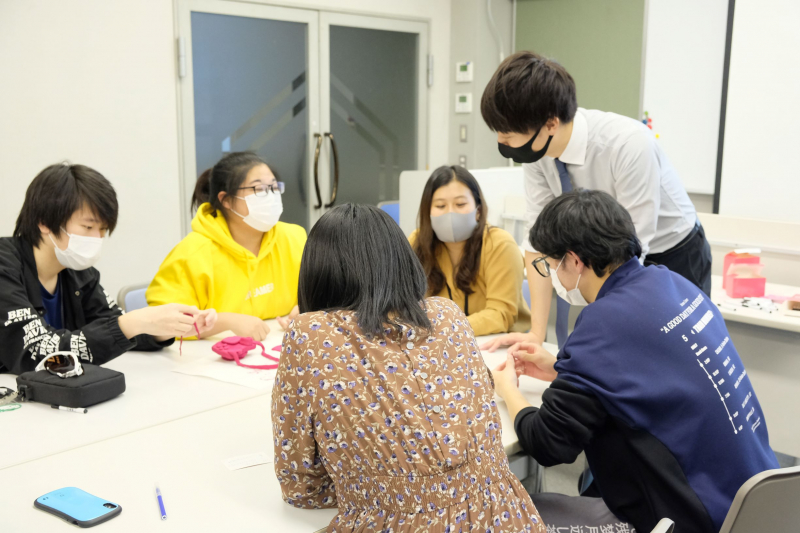
Activities
Turning Diversity into Learning: “Multicultural Program”
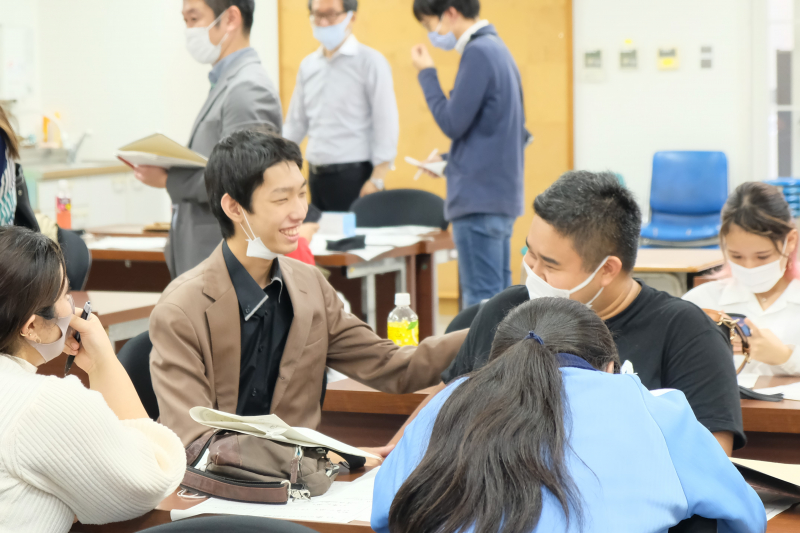
There are approximately 770 students(※) enrolled in high schools in Tokyo who are in need of Japanese language instruction. The “Multicultural Program” is held in collaboration with public metropolitan part-time high schools, where many students with foreign roots are enrolled in. In this program, in addition to providing safety for students while living in Japanese society by coordinating lectures by lawyers on residence statuses, we are also creating an environment where students can learn from each other regardless of their nationalities by working on “My Project,” in which each student explores issues and interests around them.
※Based on “Survey of the Acceptance of children who need Japanese language Instruction” by MEXT (2008).
In 2020, students worked on their “My Project” under the theme of the “Living with COVID-19” at one of our partner schools, Tokyo Metropolitan Hitotsubashi Senior High School Part Time Section.
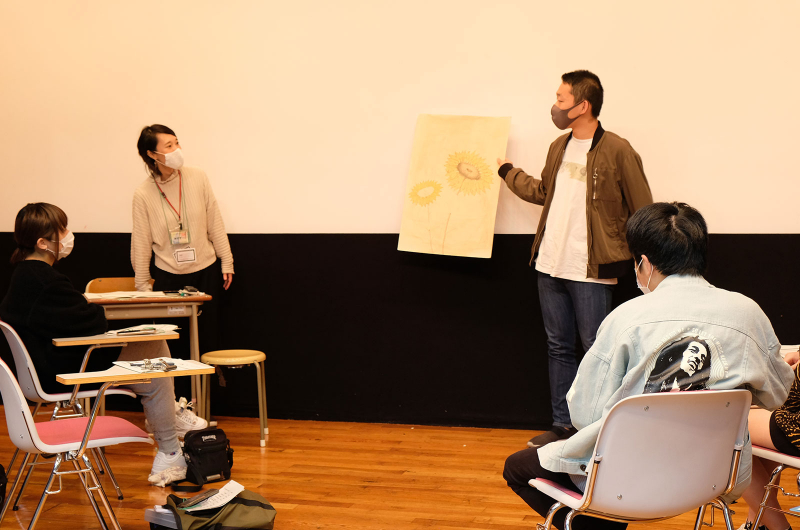
Throughout this project, we partnered with school teachers, as well as other professionals and youths with various backgrounds, such as lawyers, journalists, university professors, and recents graduates of the partner high school. Together, they participated as facilitators to draw out ideas from students.
*Here is a website that summarizes the projects that the students worked on.
After-school online support: “Route Online”
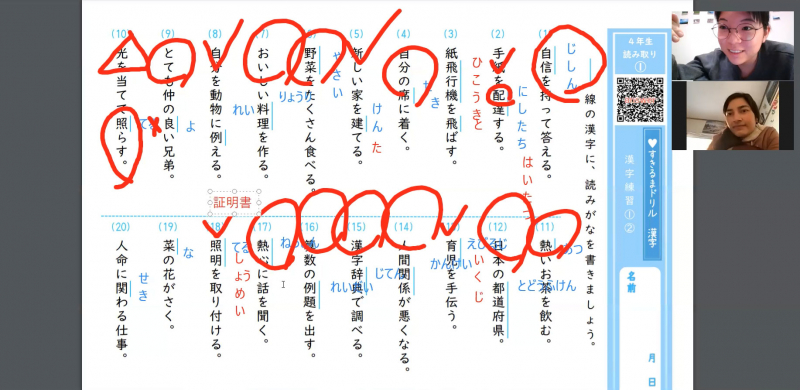
“Route Online” is an online “ibasho” or place of belonging, where students with foreign roots, mainly those taking the Multicultural Program, can connect with mentors and youth program coordinators after school. We provide individualized support programs based on the needs of each student, such as mentorship and coordination of counseling services on student life, academic support or career development and college-readiness support, and support for students who want to work more on their own projects.
Fostering safety, confidence, hope, and inspiration through comprehensive support programs
In order to solve the issues surrounding high school students with foreign roots, Katariba has invited Ms. Ebihara, the representative director of kuriya, as our partner. kuriya is a general incorporated organization that has been providing support to high school students with foreign roots since 2009. As one of the partnerships, we are incorporating the practice from the comprehensive support model for multicultural programs (4C model), which kuriya has proposed based on its past activities.
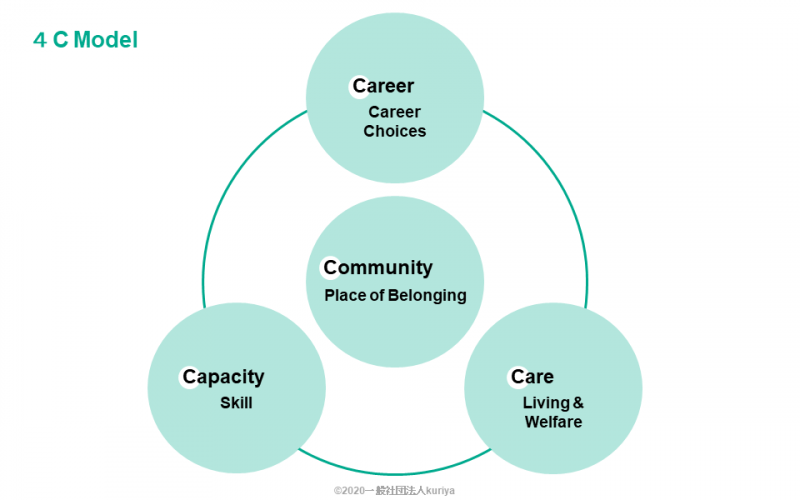
In our support based on the 4C model, we focus on providing an “ibasho”, a place where students can feel safe and feel a sense of belonging. In addition to providing support for acquiring skills such as language skills, we also provide support for career choices by creating opportunities to meet role models and offering individual career counseling. We also coordinate with other professionals in cases requiring specialized support, such as cooperating with lawyers for issues and procedures related to residential statuses. In addition, we also provide wellness programs for students with foreign roots in terms of living in Japanese society.
The “Multicultural Program” and “Route Online” introduced above are also designed based on this 4C model.
Cooperation
Cooperation with Schools
As the first step of our efforts, we are collaborating with three public metropolitan part-time high schools in Tokyo to provide the “Multicultural Program” and after-school support at each school.
The “Multicultural Program” is designed in collaboration with the school teachers, and after-school support programs are designed to create a wrap-around service with the schools and teachers through student information sharing.
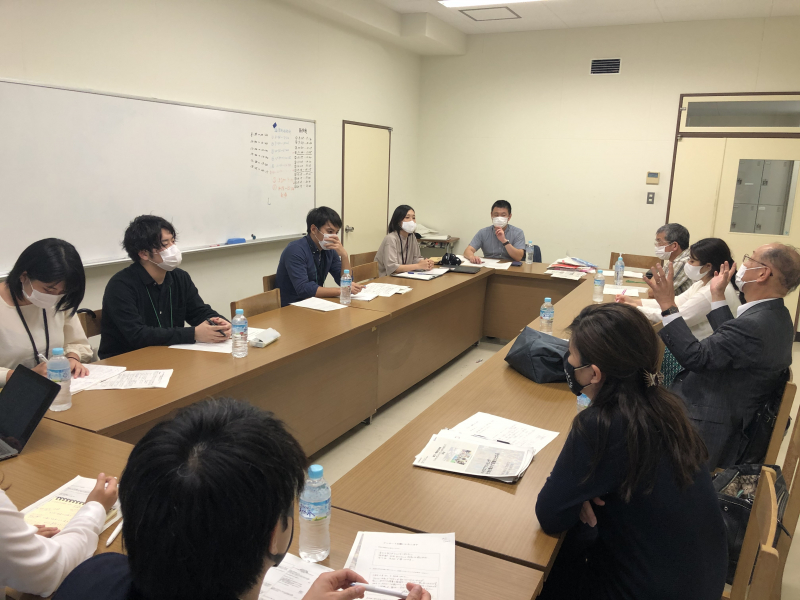
Cooperation with Specialists
We coordinate with lawyers to provide support regarding visa statuses, and with welfare specialists and psychologists to resolve student’s cases.
